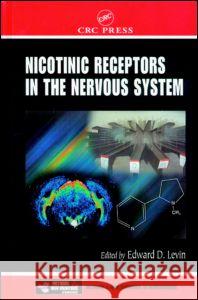Nicotinic Receptors in the Nervous System » książka
Nicotinic Receptors in the Nervous System
ISBN-13: 9780849323867 / Angielski / Twarda / 2001 / 312 str.
Nicotine research has been conducted for the better part of a century, but with the discovery of the relationship of nicotinic systems to Alzheimer's disease, the differentiation of nicotinic receptor subtypes, and the development of novel nicotinic ligands, the field of nicotine research has exploded. This book will provide you reference to the latest research methods and findings concerning nicotinic neural systems.
Featuring a unique approach, Nicotinic Receptors in the Nervous System provides integrated coverage of cutting-edge research concerning neuronal nicotinic systems relevant to smoking addiction and cognitive dysfunction. By bringing together molecular and neurochemical applications, this book provides the key to understanding function and dysfunction of nicotinic systems and how they are significant for disease, addiction, and the development of novel drug treatments.
Within the next several years, it is very promising that clinical research will support the use of nicotinic treatments for addiction, pain, and cognitive and motor dysfunction. Nicotinic Receptors in the Nervous System provides you with the basic mechanistic background for these treatments as well as the functional assessment necessary to determine therapeutic effects.
Nicotine research has been conducted for the better part of a century, but with the discovery of the relationship of nicotinic systems to Alzheimer's disease, the differentiation of nicotinic receptor subtypes, and the development of novel nicotinic ligands, the field of nicotine research has exploded. This book will provide you reference to the latest research methods and findings concerning nicotinic neural systems.
Featuring a unique approach, Nicotinic Receptors in the Nervous System provides integrated coverage of cutting-edge research concerning neuronal nicotinic systems relevant to smoking addiction and cognitive dysfunction. By bringing together molecular and neurochemical applications, this book provides the key to understanding function and dysfunction of nicotinic systems and how they are significant for disease, addiction, and the development of novel drug treatments.
Within the next several years, it is very promising that clinical research will support the use of nicotinic treatments for addiction, pain, and cognitive and motor dysfunction. Nicotinic Receptors in the Nervous System provides you with the basic mechanistic background for these treatments as well as the functional assessment necessary to determine therapeutic effects.











